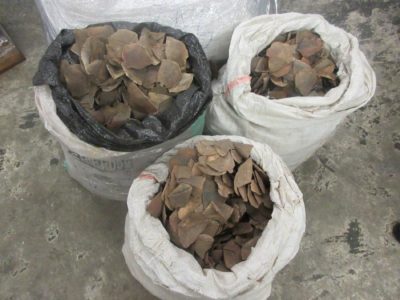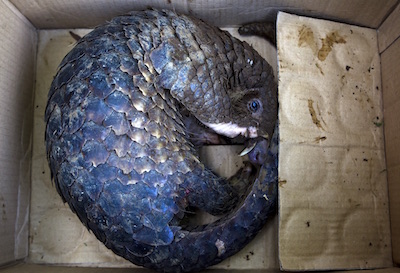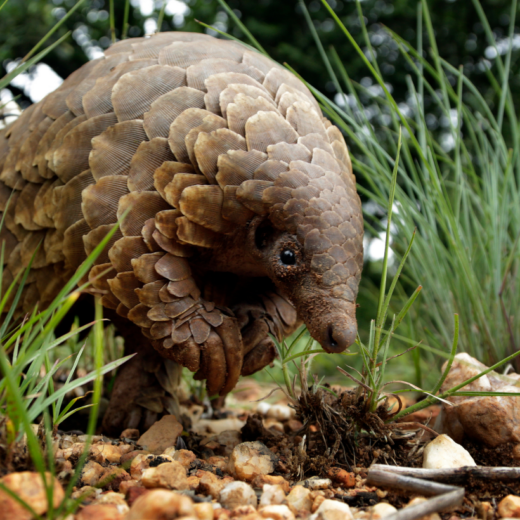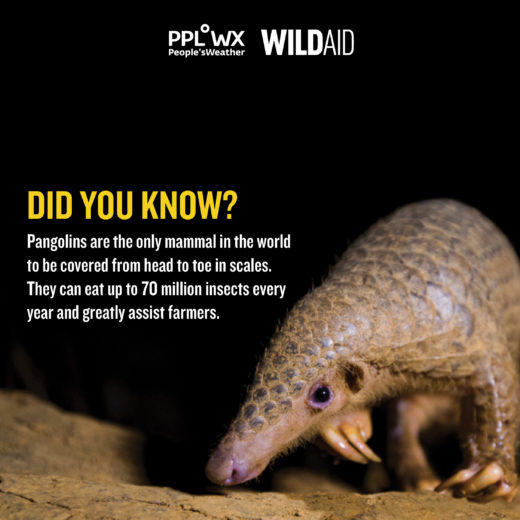
Hong Kong SAR customs officials have announced the largest seizure of suspected pangolin scales in five years. Worth an estimated USD$1.8 million, the haul is the latest in a series of recent, high-profile pangolin busts in the region.
Also known as “scaly anteaters,” pangolins are small insectivores from Asia and Africa that are unique among mammals for their large, overlapping scales made of keratin — the same protein found in human hair and fingernails. Consumer demand for pangolin scales (used in Traditional Chinese Medicine) as well as pangolin meat have led to rampant poaching. In fact, the pangolin is considered by many to be the most-trafficked mammal on earth: All eight pangolin species are at risk of extinction.


According to a government press release issued Tuesday, officials seized 259 bags containing about 7 tons of suspected pangolin scales — more than the weight of the average African elephant. The scales were found via routine random inspection of a shipment arriving from Nigeria that had been falsely declared as “660 bags of recycled plastic particles.”
This seizure comes less than a month after Hong Kong SAR customs found about 4.4 tons of scales originating from Cameroon and also declared as plastic material.
Trafficking endangered animals through Hong Kong SAR carries a potential jail sentence of 2 years and a maximum fine of USD$650,000.
Tuesday’s pangolin scale seizure can be found on WildAid’s “Wildlife Trafficking: Global Seizures and US Prosecutions” interactive map.
Stay in touch and get the latest WildAid updates.
SIGN UPAbout WildAid
WildAid is a non-profit organization with a mission to protect wildlife from illegal trade and other imminent threats. While most wildlife conservation groups focus on protecting animals from poaching, WildAid primarily works to reduce global consumption of wildlife products such as elephant ivory, rhino horn and shark fin soup. With an unrivaled portfolio of celebrity ambassadors and a global network of media partners, WildAid leverages more than $308 million in annual pro-bono media support with a simple message: When the Buying Stops, the Killing Can Too.
Journalists on deadline may email communications@wildaid.org


